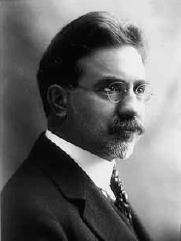
1887 - 1941 Person Name: B. Cecil Gates Composer of "[How long, O Lord most holy and true]" in Hymns of the Church of Jesus Christ of Latter-day Saints Brigham Cecil Gates (August 17, 1887 – August 31, 1941) was an American music conductor and composer.
Gates was born in Laie, Oahu, Kingdom of Hawaii, to Jacob F. Gates and his wife Susa Young Gates, Americans from Utah Territory serving in Hawaii as missionaries for the Church of Jesus Christ of Latter-day Saints (LDS Church). He was the second of the couple's 12 children.
Following early training in music from teachers at Brigham Young Academy, John H. McClellan, and the New England Conservatory of Music, Gates taught piano in St. George, Utah.
From 1907 to 1910, Gates served was an LDS Church missionary in the Eastern States Mission, which was headquartered in New York City. He studied in the Scharwenka Conservatory of Music in Berlin from 1910 to 1913 and graduated with high honors.
On June 30, 1917, Gates married Gweneth Gibbs in the Salt Lake Temple. They were the parents of five children.
From 1913 to 1925, Gates was head of the Music Department of the LDS University, the predecessor of LDS Business College. During this period, he began what later became the McCune School of Music, assembling a faculty. The school gained national recognition for the high quality of its administration and teachings.
In 1920, when the LDS Church organized its General Church Music Committee, Gates was one of its original 13 members.
From 1916 to 1935, Gates was assistant director of the Mormon Tabernacle Choir. He was a member of the General Board of the Young Men's Mutual Improvement Association from 1918 to 1929. With his sister Emma Lucy Gates Bowen, he organized the Lucy Gates Grand Opera Company of Salt Lake City in 1915 and there conducted many of the world's great operas. In 1926, Gates was appointed chairman of the Music Department at Utah State University. He also composed a significant number of choral and orchestral works, popular with people at all levels of musical background and ability.
Gates also served as director of the Salt Lake Oratorio Society.
Gates died in Salt Lake City after suffering from a debilitating illness for several years before his death.
Brigham Cecil Gates

